moving charges and magnetism
1/52
Earn XP
Description and Tags
magnets
Name | Mastery | Learn | Test | Matching | Spaced |
|---|
No study sessions yet.
53 Terms
inside current carrying conductor, electric field is zero
The electric field inside a current carrying conductor is not zero; it is the electric field outside the conductor that is zero in static conditions.
force on charge outside current carrying element must be zero at rest and constant velocity because electric field is zero
no, force on charge is not zero if it has constant velocity because the magnetic field may exert a force on the moving charge.
tesla and gauss relation
1 T= 104 Gauss
Magnetic field vector or scalar and unit and dimension
Vector
unit Tesla si and Gauss cgs
M1L0T-2A-1
small current element IdL is vector or scalar
vector
Biot savarts law
B= u0/4n IdLsin0/ r2
vector form of biot savarts law
vector form
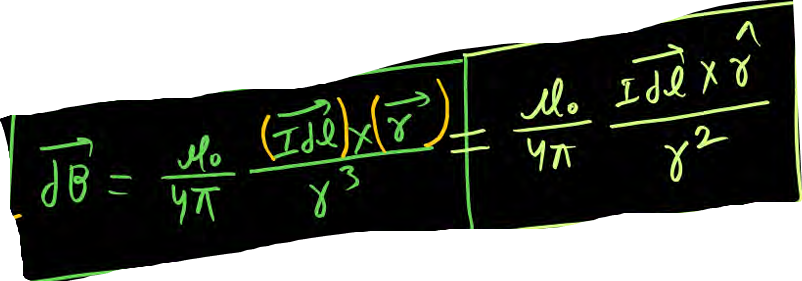
permeability of free space numerical value and dimension
u0 = 4n x 10-7
MLT-2A-2
permittivity e0 dimensional formula
M-1L-3T4A2
Magnetic field characteristics
long range field
produced by vector component IdL unlike electric field which is produced by a scalar source charge q
direction of B is perpendicular to position vector r and current element IdL
medium dependent
follow superposition theorem
follows inverse square law
it depends on angle
magnetic field at centre of any circle upto angle theta
B= u0I/2R (0/2n)
for full circle u0I/2R
magnetic field at centre for half circle, 1/4th circle and 120 degrees circle
u0I/ 4R
u0 I/8R
u0 I/6R
Magnetic field if n number of loops kept together keeping radius contant
If same wire is bent into n loops
nB
n2B
magnetic field due to finite straight wire
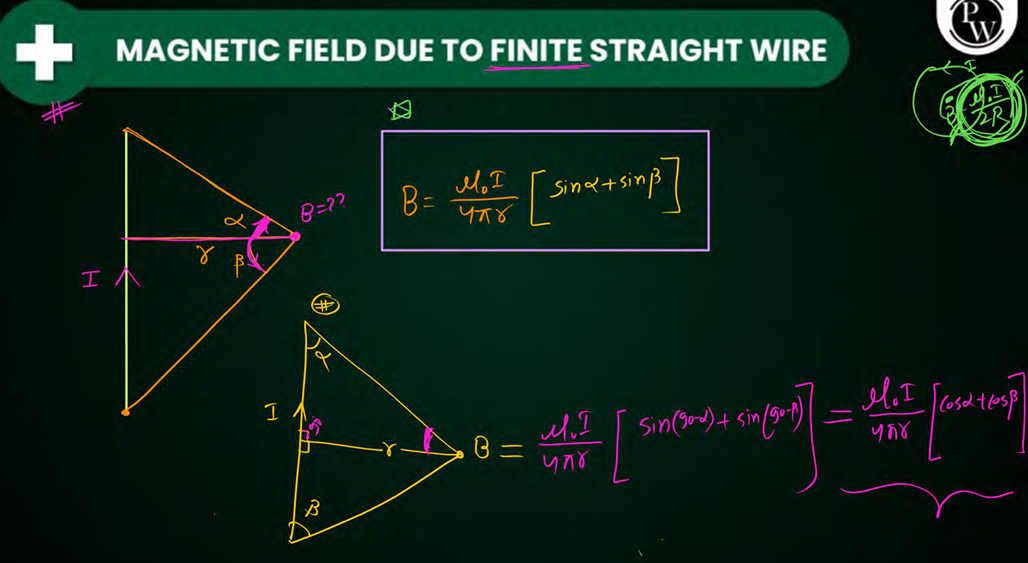
magnetic field due to infinite straight wire
u0I/2pieR
If concentric circles with radius r, 2r, 4r, 8r, 16r kept with dirn of current opposite in alternate circles. Find field at centre
u0I/3R
If point taken at lower side of a finite wire then mag field
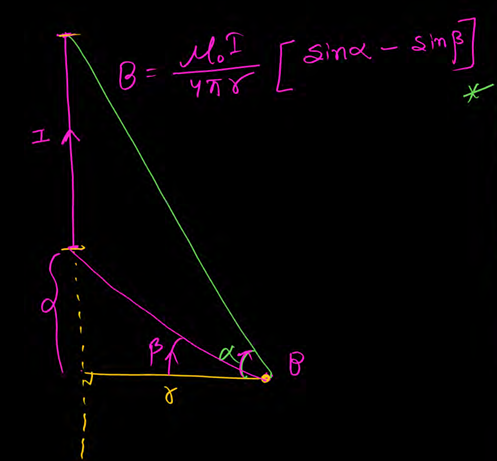
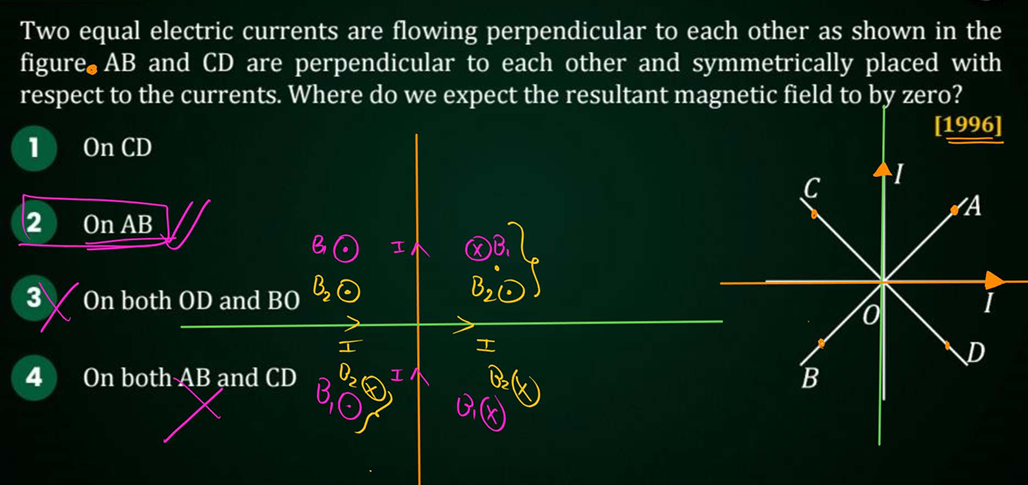
dont panic with so many things just mark the direction of mag field by the two current elements
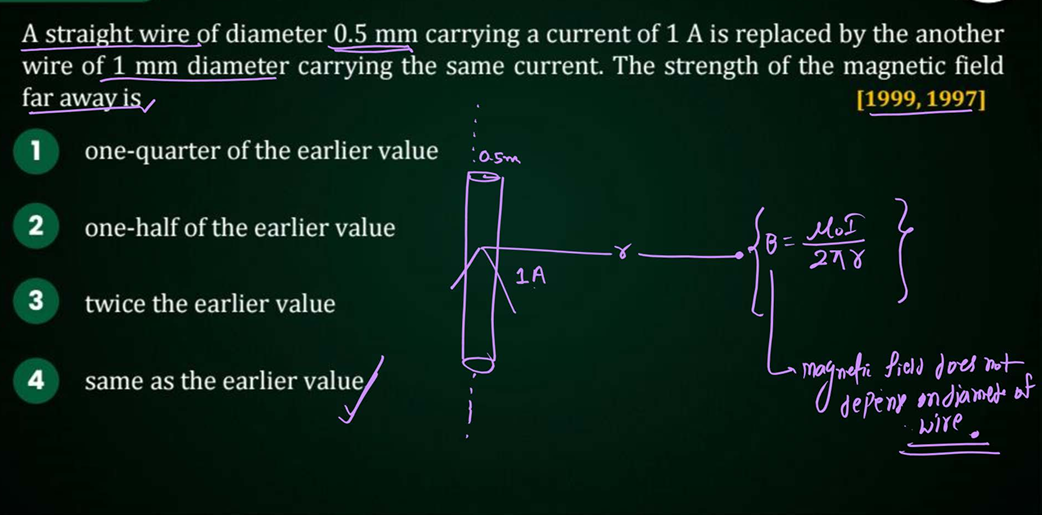
the magnetic field does not depend on diameter of conductor only the distance between conductor and point
Two current components I and nI are in same direction. Find distance from I where field will be zero
x= r/n+1
Two current components I and nI are in different direction. Find distance from I where field will be zero
x= r/n-1
field at centre of current carrying square
2root2 u0I / nL
field at centre of current carrying hexagon
root3 u0I / nL
three identical current carrying loops placed perpendicular to each other with current I and radius R. find mag field at centre
root3 u0I/2R
root2 u0I/2R if two circular loop
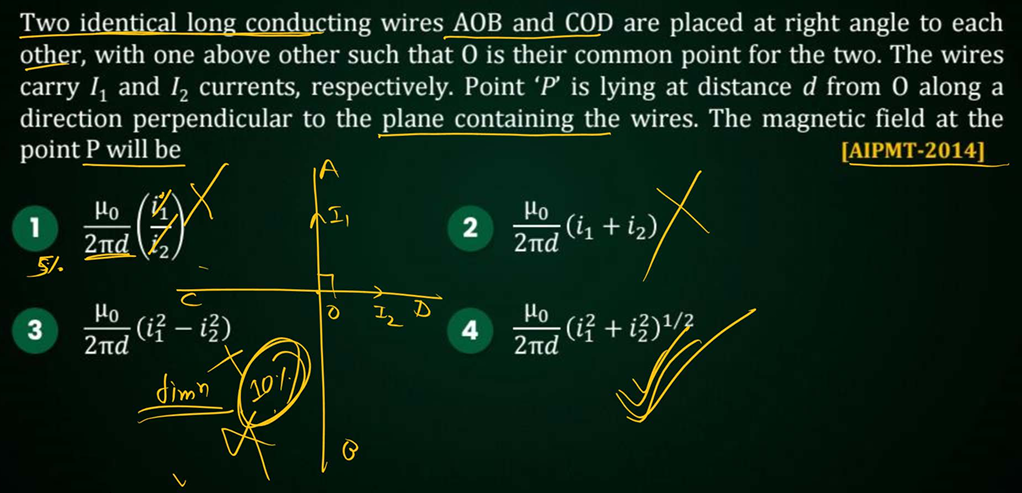
dimension dekh lo ya ye dekhlo ki distance d plane se perpendicular hai to root le lenge current i1 i2 ka
field at centre of a square loop where current enters through a and exits through a
Bnet not equal to zero
only zero for current aana jana from different location
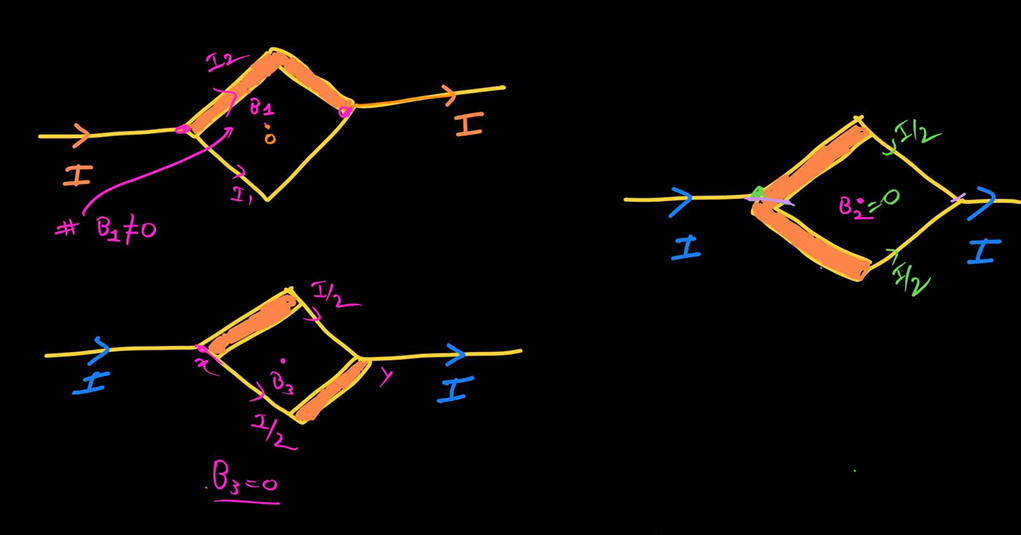
why Bnet not equal to zero in first case
because if we section it into 2 halves along the current then we get two unequal conductors of two width
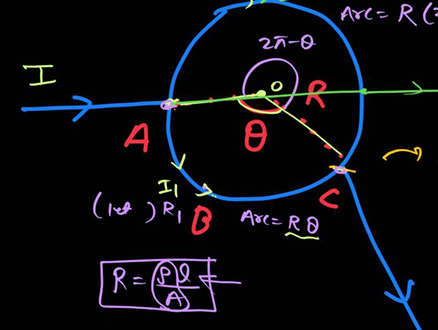
find field due to arc abc
B= u0i1/2R (0/2n)
where i1 = i(2n-0) / 2n
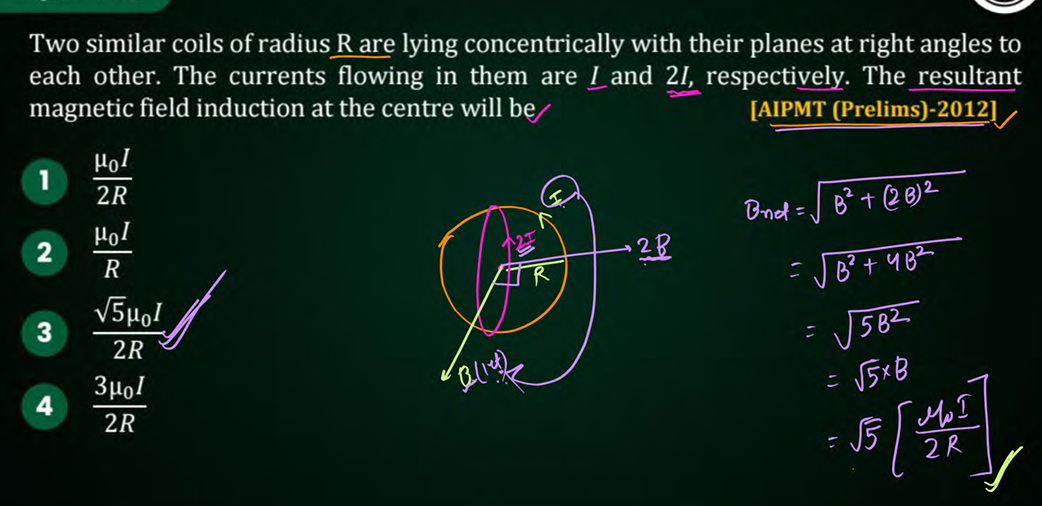
first mark direction of B1 and B2 then find resultant
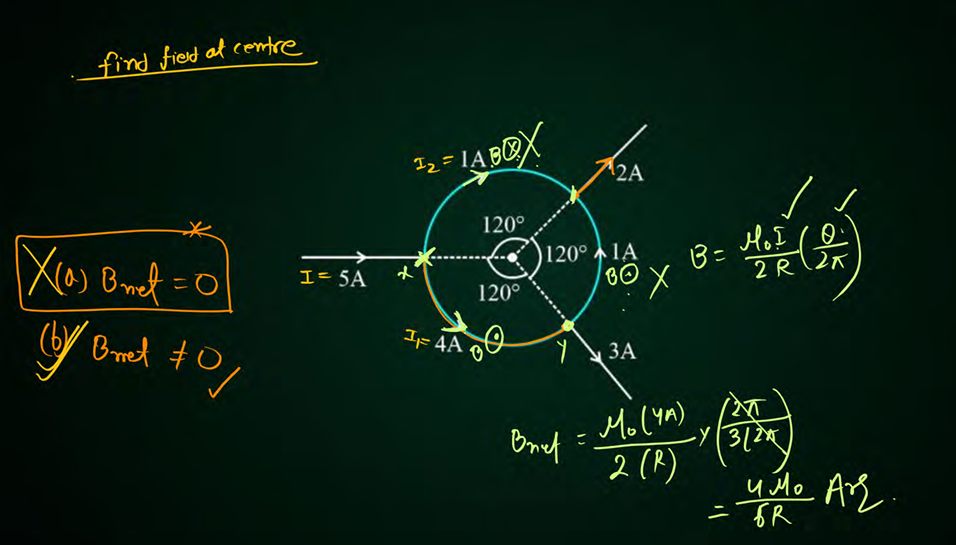
Bnet at centre
Bnet at centre is not zero as 3 arrows present
two current elements with opposite direction will get cancelled
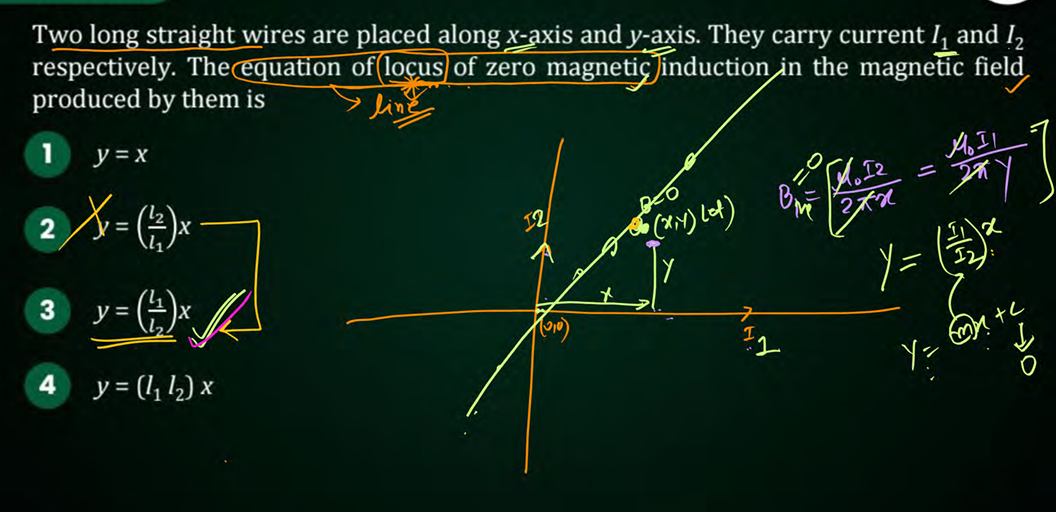
locus nikalne bola hai bss current and distance ka relation nikalo
Magnetic field on axis of circular loop
u0IR2 /2(R2+x2)3/2
graph for magnetic field on axis of ring
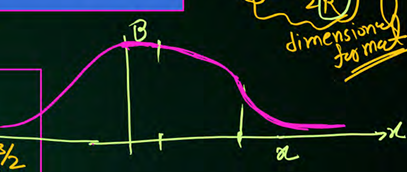
difference b/w gauss law and amperes cicuital law
flux through closed surface= o = E.dA = qin/ eo
this is gauss law for 3d objects like sphere cube cylinder
it is not always applicable to calculate elec field only for symmetrical charge distribution
B.dL= u0 Iin
this is amperes circuital law for loops like ring, square loop not for closed surface
always valid always applicable for symmetric current distribution
magnetic field inside infinite hollow cylindrical wire carrying current i and outside mag field
B inside= 0
B outside= same as infinite wire
magnetic field inside infinite solid cylindrical wire carrying current i and outside mag field
B= u0Ir/2pieR2

find B.dL for the loops


torque= MB sin0
MB sin0= NIA Bsin0
where N= no of turns
I= current
A= area
B= mag field strength
angle not 30o because area vector is up and not horizontal with magnetic field
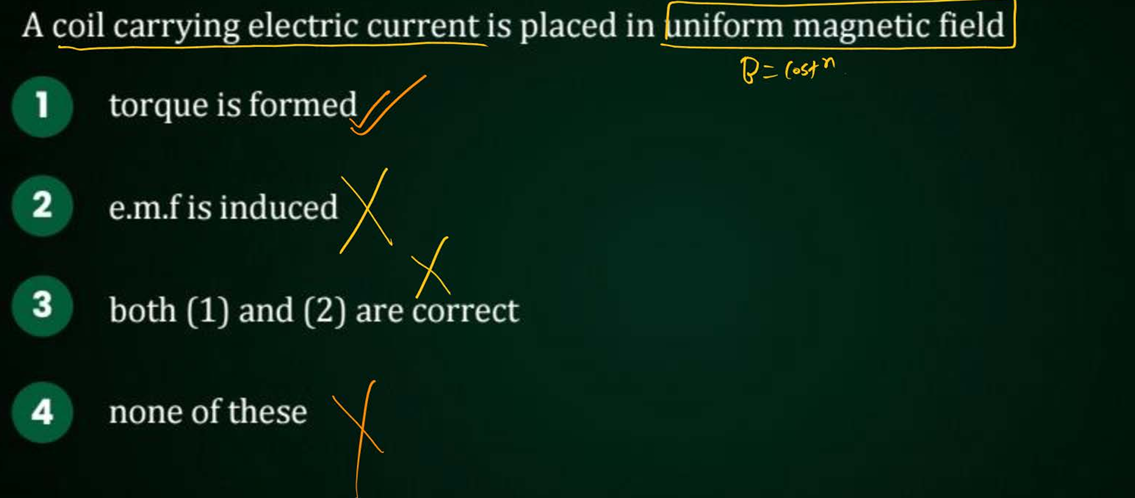
Torque is produced when there is uniform magnetic field and
emf is produced when there is change in magnetic flux so emf not produced
torque and potential energy vector or scalar
torque vector
potential energy scalar
find time taken by circular loop to turn by angle 90 and become parallel to magnetic field
T= 2n |root i/MB|
time to turn 360 degrees = T in shm
time for 90 degrees= T/4
so time taken= 2n |root i/MB| /4
angular speed of square coil if it turns by 90 degree and becomes parallel to magnetic field
each arm of square of mass m and length l
root 3iB/m
where i= moment of inertia
B= magnetic field
m= mass of arm
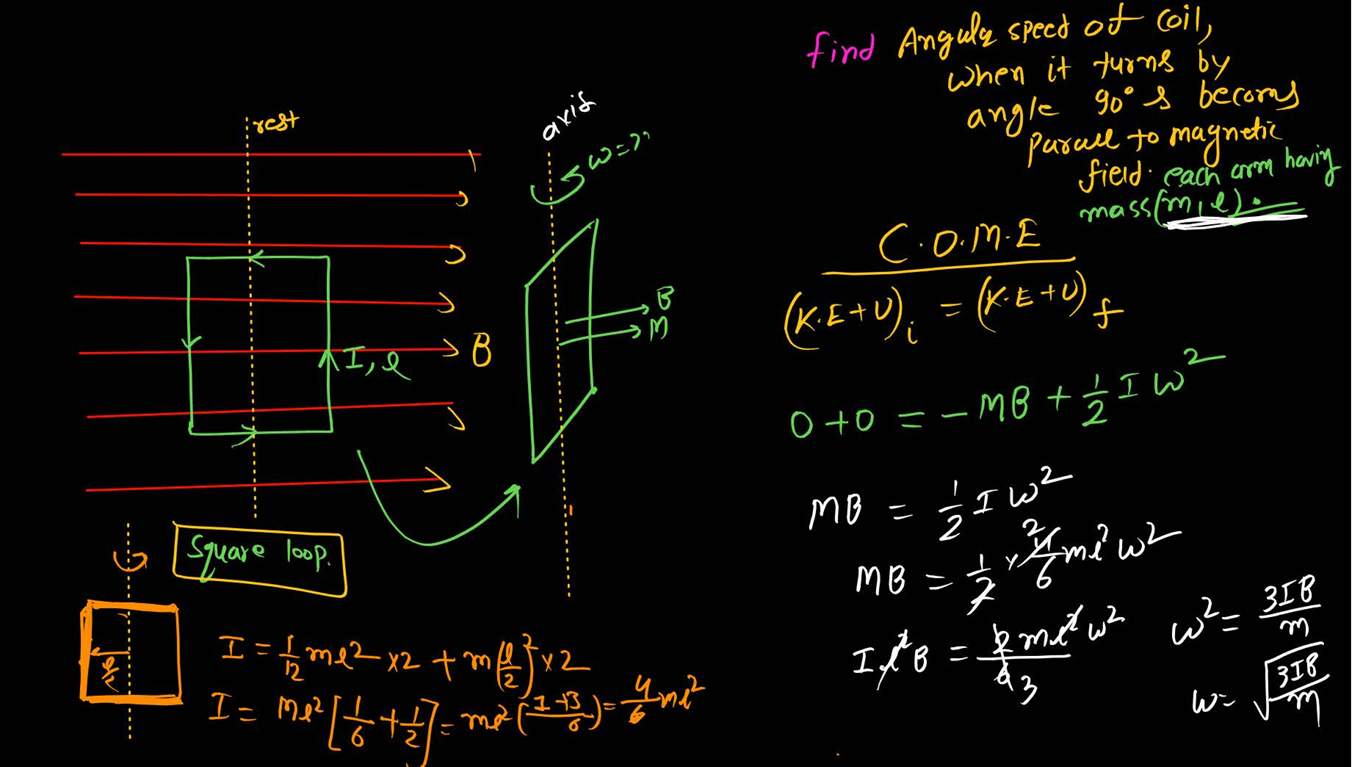
angular speed of circular coil if it turns by 90 degree and becomes parallel to magnetic field
root 4niB/m
i= moment of inertia
m= mass
formula of solenoid and toroid magnetic field
B= u0 nI n=N/L
for toroid n = N/2nR where R= r1+r2 /2
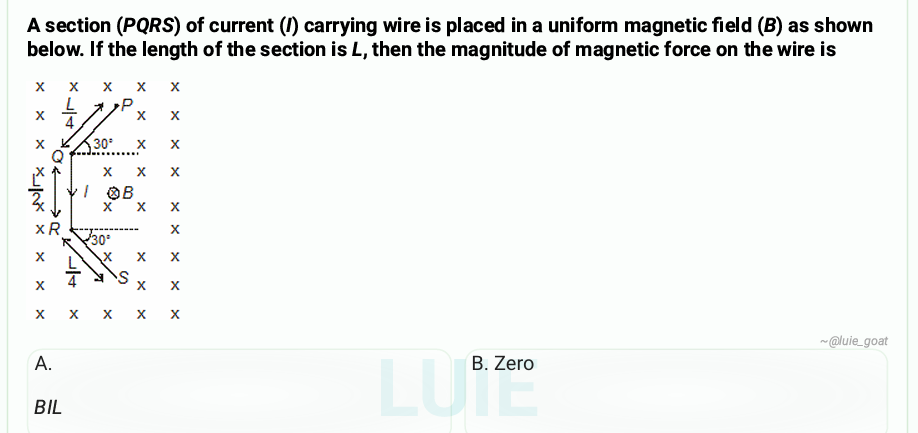
BI(L/2) + BI(L/4)sin30 + BI(L/4)sin30
= ¾ BIL

